Prof. Eran Halperin has found that advances in DNA sequencing carry with them an enormous risk - the theft of personal information from genetics databases poses a serious threat to privacy. He urges that new legislation concerning the maintenance of private and public databases, as well as anti-genetic-discrimination laws, should be drafted.
Feb 7th, 2013
Read more
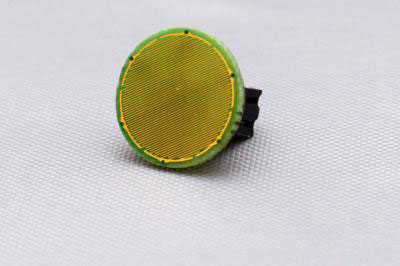 Researchers from the Polytechnic University of Catalonia have developed a technique that improves and cuts the cost of a technique called electroporation, which involves opening pores in cell membranes using an electric field to introduce substances like drugs and DNA.
Researchers from the Polytechnic University of Catalonia have developed a technique that improves and cuts the cost of a technique called electroporation, which involves opening pores in cell membranes using an electric field to introduce substances like drugs and DNA.
Feb 7th, 2013
Read more
Researchers propose a DNA chip with 32 polymorphisms to be used for diagnosing, but also for calculating genetic susceptibility to different variables, including how well the patient is responding well to drugs or normalisation of symptoms.
Feb 7th, 2013
Read more
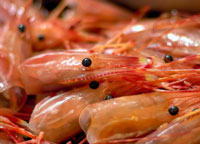 Scientists are investigating how shell waste from crustaceans could be turned into polymer precursors as a substitute to petroleum-derived solutions.
Scientists are investigating how shell waste from crustaceans could be turned into polymer precursors as a substitute to petroleum-derived solutions.
Feb 7th, 2013
Read more
A team of researchers from Scotland has used a novel 3D printing technique to arrange human embryonic stem cells (hESCs) for the very first time.
Feb 5th, 2013
Read more
The Human TFIID is a megadalton-sized multiprotein complex composed of TATA-box-binding protein (TBP) and 13 TBP-associated factors (TAFs). Despite its crucial role, the detailed architecture and assembly mechanism of TFIID remain elusive.
Feb 4th, 2013
Read more
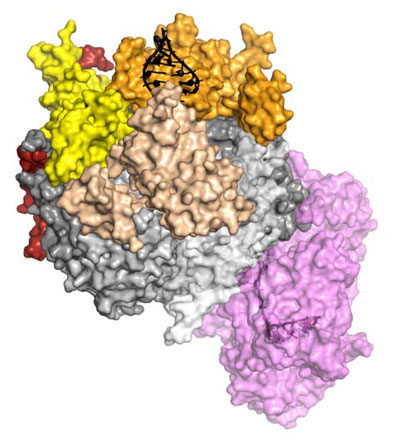 Max Planck Researchers unravel the structure of the machinery for RNA disposal.
Max Planck Researchers unravel the structure of the machinery for RNA disposal.
Feb 4th, 2013
Read more
University of Pittsburgh Cancer Institute (UPCI) researchers have uncovered a technique to halt the growth of cancer cells, a discovery that led them to a potential new anti-cancer therapy.
Feb 4th, 2013
Read more
A research team in Japan exploring the functions of messenger ribonucleic acid (mRNA) - a molecule that encodes the chemical blueprint for protein synthesis - has discovered a way to take a close look at the temperature distribution inside living cells. This discovery may lead to a better understanding of diseases, such as cancer, which generate extraordinary intracellular heat.
Feb 2nd, 2013
Read more
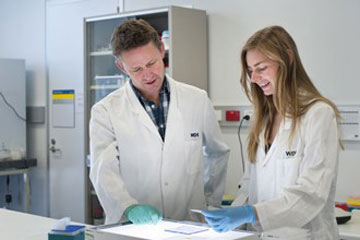 Scientists at the Walter and Eliza Hall Institute have for the first time visualised the molecular changes in a critical cell death protein that force cells to die.
Scientists at the Walter and Eliza Hall Institute have for the first time visualised the molecular changes in a critical cell death protein that force cells to die.
Feb 2nd, 2013
Read more
 Max Planck researchers crack the olfactory code for partner selection and synthesise the first biologically effective perfume.
Max Planck researchers crack the olfactory code for partner selection and synthesise the first biologically effective perfume.
Feb 1st, 2013
Read more
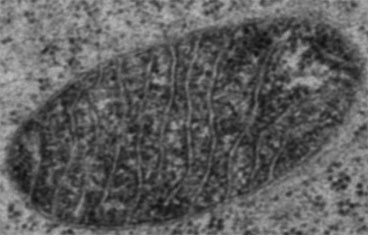 New technique pinpoints protein locations, helping scientists figure out their functions.
New technique pinpoints protein locations, helping scientists figure out their functions.
Feb 1st, 2013
Read more
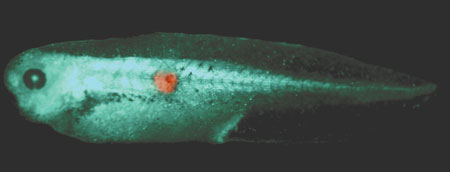 Biologists at Tufts University School of Arts and Sciences have discovered a bioelectric signal that can identify cells that are likely to develop into tumors. The researchers also found that they could lower the incidence of cancerous cells by manipulating the electrical charge across cells' membranes.
Biologists at Tufts University School of Arts and Sciences have discovered a bioelectric signal that can identify cells that are likely to develop into tumors. The researchers also found that they could lower the incidence of cancerous cells by manipulating the electrical charge across cells' membranes.
Feb 1st, 2013
Read more
Scientists report that they have developed a method that cuts down the time it takes to make new 'parts' for microscopic biological factories from 2 days to only 6 hours.
Feb 1st, 2013
Read more
New method allows plant biologists to 'capture' and sequence the DNA of hundreds of complete chloroplast genomes at 1 time.
Jan 31st, 2013
Read more
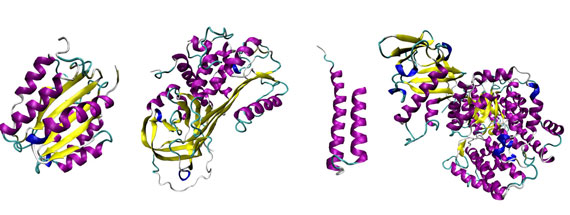 The evolutionary history of proteins shows that protein folding is an important factor. Especially the speed of protein folding plays a key role.
The evolutionary history of proteins shows that protein folding is an important factor. Especially the speed of protein folding plays a key role.
Jan 31st, 2013
Read more
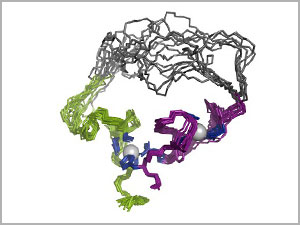 There's a wobbly new biochemical structure in Burckhard Seelig's lab at the University of Minnesota that may resemble what enzymes looked like billions of years ago, when life on earth began to evolve - long before they became ingredients for new and improved products, from detergents to foods and fuels.
There's a wobbly new biochemical structure in Burckhard Seelig's lab at the University of Minnesota that may resemble what enzymes looked like billions of years ago, when life on earth began to evolve - long before they became ingredients for new and improved products, from detergents to foods and fuels.
Jan 30th, 2013
Read more
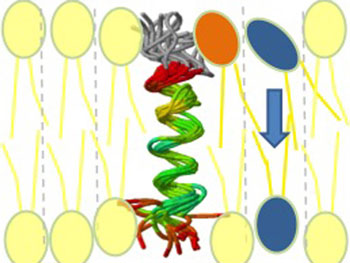 Biomembranes consist of a mosaic of individual, densely packed lipid molecules. These molecules are formed inside the cells. But how do these building blocks move to the correct part of the membrane? Researchers from Technische Universit�t M�nchen (TUM) have discovered a mechanism to show how this is done.
Biomembranes consist of a mosaic of individual, densely packed lipid molecules. These molecules are formed inside the cells. But how do these building blocks move to the correct part of the membrane? Researchers from Technische Universit�t M�nchen (TUM) have discovered a mechanism to show how this is done.
Jan 30th, 2013
Read more

 Subscribe to our Biotechnology News feed
Subscribe to our Biotechnology News feed








